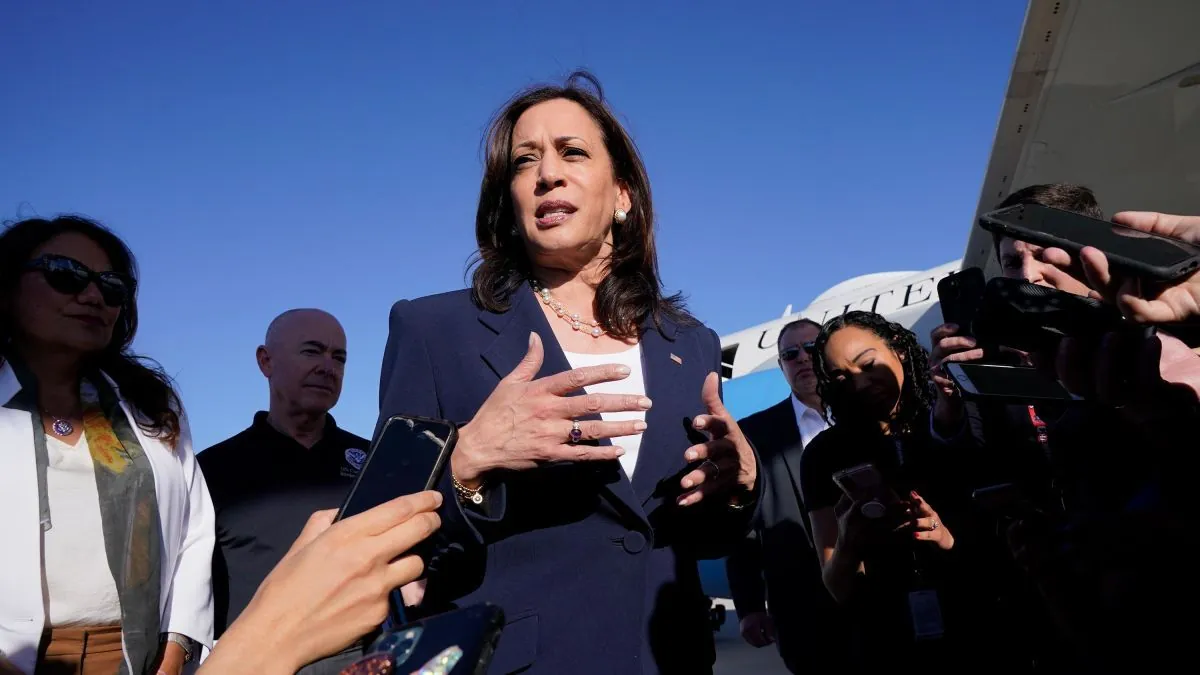Vice President Kamala Harris is set to visit the U.S.-Mexico border in Arizona on September 27, 2024, as part of a strategic effort to address immigration concerns. This visit comes at a crucial time, with the November presidential election approaching and immigration remaining a contentious issue.
The U.S.-Mexico border, stretching approximately 1,954 miles, has been a focal point of political debate for decades. Arizona, sharing about 373 miles of this border, has often been at the center of immigration discussions. Harris's visit aims to highlight the administration's approach to border management and immigration policy.
Meanwhile, former President Donald Trump has criticized Harris's planned visit, describing it as politically motivated. At a rally in North Carolina, Trump questioned the timing of the visit, suggesting it was a response to declining poll numbers for the Democratic campaign.
Immigration has been a cornerstone of Trump's campaign, with proposals for stricter border control and deportation policies. In contrast, Harris has emphasized her experience as California's Attorney General, during which she dealt with border-related issues and prosecuted smuggling operations.
The debate over immigration policy has evolved significantly since the establishment of the U.S. Border Patrol in 1924. More recently, the creation of the Department of Homeland Security in 2002 and Immigration and Customs Enforcement (ICE) in 2003 has reshaped the federal approach to border security and immigration enforcement.
Harris has been advocating for a more comprehensive approach to immigration, criticizing the failure of a bipartisan border security deal in Congress. She argues that Trump prioritizes political gain over practical solutions, while promising more humane treatment of immigrants if elected.
Recent policy changes have impacted border crossing statistics. In June 2024, President Biden announced new asylum rules, resulting in a decrease in arrests for illegal border crossings. However, public opinion remains divided on the issue.
A recent AP-NORC poll indicates that Trump maintains an advantage over Harris regarding public trust in handling immigration. This reflects ongoing challenges for the Democratic campaign in addressing an issue that has been central to U.S. politics for generations.
The history of U.S. immigration policy is complex, with significant legislative milestones shaping the current landscape. The Immigration and Nationality Act of 1965 eliminated national-origin quotas, while the Refugee Act of 1980 formalized the U.S. refugee resettlement program. More recently, debates have centered around concepts like "chain migration" and the status of "Dreamers" – undocumented immigrants who entered the U.S. as minors.
As both campaigns intensify their focus on immigration, the upcoming election is likely to be significantly influenced by voters' perceptions of border security and immigration policy. The outcome may have far-reaching implications for the future of U.S. immigration law and border management strategies.
"When Kamala speaks about the border, her credibility is less than zero. I hope you're going to remember that on Friday. When she tells you about the border, ask her just one simple question: 'Why didn't you do it four years ago?'"
This statement reflects the ongoing political tension surrounding the immigration debate, highlighting the challenges both candidates face in addressing this complex issue.
